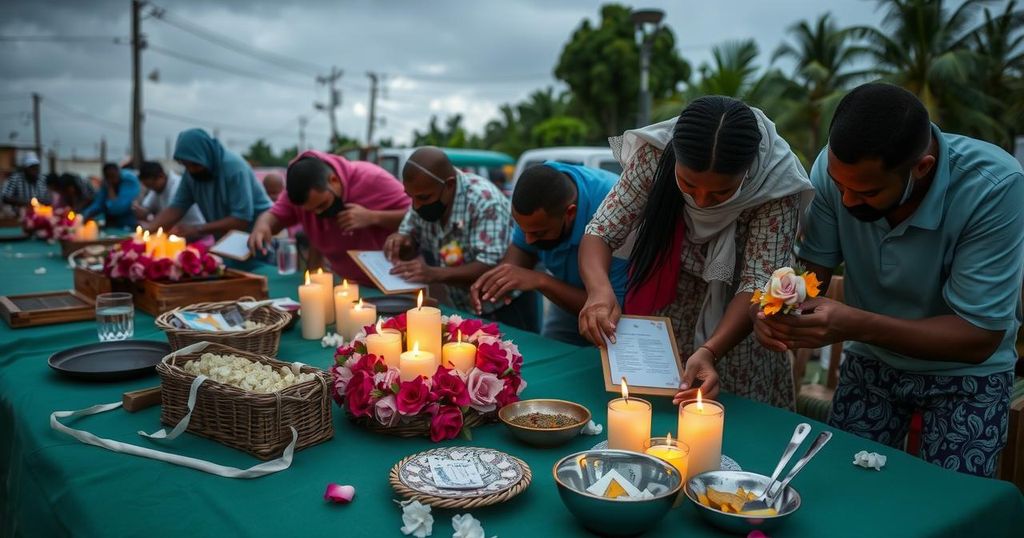The Comoros has declared a week of national mourning due to the destruction caused by Cyclone Chido, a category 4 storm that severely affected Mayotte, where authorities fear hundreds of fatalities. President Azali Assoumani announced mourning will continue until Sunday, highlighting the extensive damage and loss of life, especially in shantytowns where many Comorans reside.
The Comoros has declared a week of national mourning following the devastation inflicted by Cyclone Chido, a powerful category 4 storm that struck the neighboring French overseas department of Mayotte. President Azali Assoumani announced that the mourning period will last until Sunday, as communities grapple with significant loss of life and extensive damage to infrastructure. Reports indicate that local authorities fear the storm may have caused “several hundred” fatalities, particularly in impoverished shantytowns where many Comoran nationals reside.
Cyclone Chido is recognized as the most severe storm to impact Mayotte in the past 90 years, with winds exceeding 220 kilometers (137 miles) per hour recorded during the storm’s passage. Mayotte remains historically connected to the Comoros, having opted for French status during referendums in 1974 and 1976 after the Comoros gained independence. The geographical proximity of the islands, just 70 kilometers (43 miles) apart, exacerbates the human toll, as many residents from the Comoros frequently travel to Mayotte, often utilizing canoes under clandestine circumstances. The cyclone’s impact has particularly struck vulnerable populations, with approximately one-third of Mayotte’s inhabitants living in makeshift dwellings.
As communities in both territories begin to recover from the aftermath, the challenging conditions highlight the ongoing humanitarian crises in regions prone to extreme weather events.
The Comoros, an archipelago located in the Indian Ocean, has a historical and cultural connection with Mayotte, a French overseas department. This connection is reflected in the significant number of Comoran nationals residing in Mayotte due to economic opportunities and familial ties. Cyclone Chido, classified as a category 4 storm, poses a critical risk to these densely populated and often impoverished areas. Such natural disasters reveal the vulnerability of communities living in precarious conditions and the need for robust disaster preparedness strategies.
In light of the tragedy caused by Cyclone Chido, the Comoros has entered a period of national mourning, reflecting the profound impact of the storm on both local and neighboring populations. As recovery efforts commence, the focus must be on rebuilding lives and infrastructure, reinforcing the need for sustainable development and enhanced disaster resilience in the face of future climatic challenges.
Original Source: www.lemonde.fr






